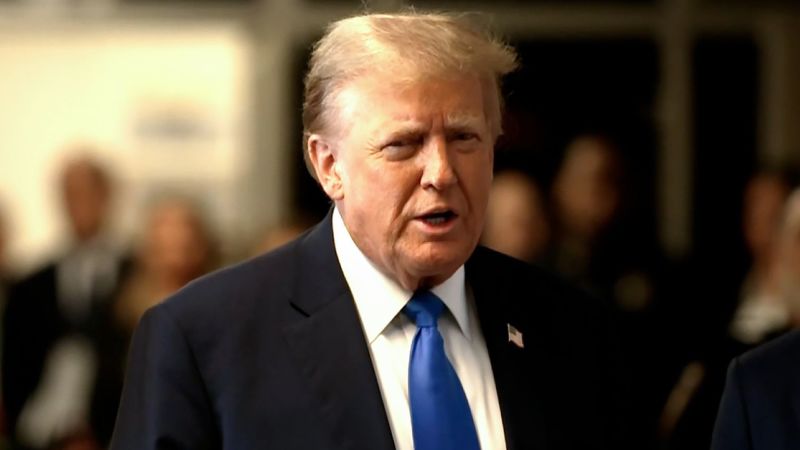In his remarks to the media, Trump claimed that the case against him was politically motivated and that he did nothing wrong. He also sought to downplay the severity of the charges he is facing, emphasizing that the trial is about a “civil matter” rather than a criminal one. Collins points out that while it is true that the trial is a civil case, it does involve serious allegations of fraud and deception, which can have legal and financial implications for Trump if he is found guilty.
Collins also highlights the fact that Trump has repeatedly denied any involvement in the hush money payments that are at the center of the trial, despite evidence suggesting otherwise. She points out that Trump’s former attorney, Michael Cohen, has testified under oath that Trump directed him to make the payments, and that there are recordings of Trump discussing the payments with Cohen. This evidence contradicts Trump’s claims of innocence and raises questions about his credibility.
Furthermore, Collins fact checks Trump’s assertion that the case was brought against him by the New York attorney general for political reasons. She notes that the case was actually filed by the Trump Organization’s insurance company, which paid out millions of dollars in hush money to silence women who alleged affairs with Trump. This raises questions about Trump’s attempts to deflect blame onto political rivals and underscores the seriousness of the allegations against him.
Collins also addresses Trump’s claim that he is a victim of “lawfare” and that the legal system is being used to harass and target him unfairly. She highlights the fact that Trump has faced numerous legal challenges throughout his presidency and beyond, including multiple investigations into his business dealings and personal conduct. These legal challenges are not unique to Trump and are a common occurrence for public figures, especially those with a history of controversial behavior.
Overall, Collins’ fact-checking of Trump’s remarks before his court appearance reveals inconsistencies in his statements and raises questions about his credibility and honesty. By examining the evidence against Trump and highlighting the contradictions in his claims, Collins provides valuable context for understanding the significance of the hush money trial and the legal challenges facing the former president. Her analysis underscores the importance of holding public figures accountable for their actions and statements, especially in cases where there are serious allegations of wrongdoing.


